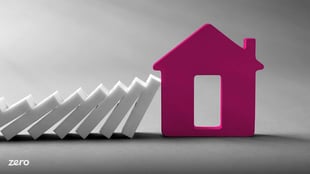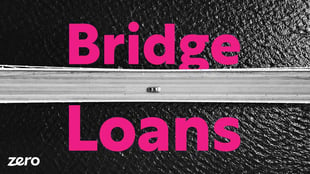Pre-qualified vs. Pre-approved Mortgage: Understanding the Difference

When looking to refinance or buy a house, the pre-qualified vs pre-approved mortgage debate can be confusing. Pre-qualification is usually performed by an independent mortgage lender, and it allows you to make offers on homes, though it might not guarantee that the lender will accept your offer.
However, the bank can facilitate the pre-approval process on your behalf, meaning that the bank will hold your mortgage and guarantee that the lender will accept your offer as long as certain conditions are met. This article discusses how these two different types of mortgages work and what each type means for people in different situations.
Read our beginners' guide to buying a home here.
What is Mortgage Pre-qualification?
Mortgage pre-qualification is the process of determining how much you can afford to spend on a home. When you are shopping for homes, it can be helpful to know what your monthly payments will look like before going into contract, making an offer, or signing official paperwork.
Mortgage pre-qualification is a service that lenders provide to potential homebuyers who are looking for the perfect house but don’t have enough money to put towards a down payment. It’s also helpful for people whose credit scores are not good enough to qualify for any of the loans available through mainstream lenders.
Mortgage brokers will first ask you for a variety of personal information and financial details to determine how much they can offer you as far as loans go. They may also need proof that you have a steady income, which they will then share with the banks to show that you are able to repay the loan.
Some mortgage brokers will offer pre-qualification based on your income alone, while others may require information about assets and liabilities as well. The broker will then prepare an estimate for what type of monthly payment they can provide you before submission to the bank or lender.
Mortgage brokers offer this service because they want to ensure that you can get a loan. They will do everything in their power to make sure that you qualify for financing so as not to lose the sale. The process can be a bit frustrating for some people, but it is worth the time if you want to get into your dream home.
What is Mortgage Pre-approval?
Mortgage pre-approval is the process of determining how much money can be borrowed before you take out a mortgage. This process usually requires an application, credit check, appraisal, property valuation, and loan terms to be agreed upon before any funds are advanced.
The mortgage pre-approval process also establishes a benchmark for determining how much the interest rate will be when the time comes to purchase your home or investment property. Pre-approved mortgages typically have more competitive rates than standard mortgage rates, and they can lead to a savings of hundreds or thousands of dollars on your loan over time.
Read our blog explaining the full home appraisal process here.
Difference Between Pre-approval & Pre-qualifying
Not everyone can qualify for a mortgage. Income levels, credit scores, and a lot of other factors can all play into whether people are approved or not. Some people may be pre-qualified before they apply for a home loan, while others will go through the process of being pre-approved first.
The two terms sound very similar, but there are important distinctions between them that you need to know about before you can make an educated decision about which one is best for your situation. Plus, it’ll help you understand the benefits that each option can provide you with when it comes time to buy a house.
Pre-approval means that someone has been evaluated by their lender and given the green light on how much money they can borrow from lenders. This value is based on various criteria like income levels, payment histories, and credit scores.
Some lenders will even provide a specific interest rate for the borrower to consider when looking at homes that are for sale or constructing them and other specifics about mortgage payments like monthly principal and interest, closing costs, taxes, and insurance premiums.
Pre-qualification is an evaluation process during which you input your financial information. This process allows the lender to screen you and inform you of the products that you qualify for. Income levels, credit scores, debt loads, and required down payment amounts are major determinants during the screening process.
For example, let's say someone is pre-approved for $250,000 and they qualify for a loan of only $110,000. The individual doesn't have to go through the process of being pre-qualified again once this discrepancy is discovered because they already know that there is no way they can be approved in their current situation. Thus, the process of buying a home will be sped up.
The difference between pre-approval and being pre-qualified is that the former gives you an idea of your best options when it comes to interest rates, closing costs, and other details. At the same time, the latter only tells you if the lender will consider you for these products based on your financial information, which could change at any time.
Moreover, when you're pre-approved, the lender has done some of the work for you by providing you with information about what your mortgage payments might look like and how much money will be needed to close on a home when it's time to make an offer.
Conversely, when you're pre-qualified, the lender will tell you whether or not they think your current financial situation is suitable for consideration of a loan. The lender will also notify you of what can happen if anything changes
We wrote a whole blog about mortgage fees and closing costs, read it here.
Pre-approved
A pre-approved mortgage is an application that a lender has already approved. The applicant qualifies for the loan by either meeting or exceeding all of the requirements necessary to be approved for said loan through the given lending institution.
Although this type of financing can be used as collateral, it cannot be used in the future if the person looking to buy a home turns down the loan yet requests loans again later on. Lenders will typically need at least two years' worth of bank statements before they will approve individuals with high debt balances.
This additional request takes place when lenders want to see how much money is coming into the potential homebuyer’s account on a regular basis. Once approved, these mortgages may not have any conditions or restrictions placed upon them outside of what was agreed upon when originally applying, unless other changes are requested.
Pre-qualified
Pre-qualified mortgage applications require less stringent credit checks than pre-approved ones, so the applicant won't be approved until after an appraisal has been completed. In this case, a mortgage lender will have to consider how much money they can lend out and at what interest rate, which will depend on each person’s individual credit score.
They also need to make sure that lending laws in their state or jurisdiction allow them to offer loans with these conditions to potential applicants before making any decisions on the loan request's approval.
Pre-qualified mortgages are based on the information you provide. They take only a few minutes to fill out, and no one will ask for any documentation. Pre-qualified mortgages provide an estimate of how much you can afford to buy a house.
Which One Should You Get?
Pre-qualified mortgages are typically easier to obtain than pre-approved mortgages. If you're looking at a house and the seller will only accept one type of mortgage, it is usually much more likely that they'll require an applicant to be pre-approved rather than approved.
That being said, a lender may not have any problem with approvals. However, it might not be worth the time or effort to go through all of the paperwork associated with an approval when they could go with someone who has already been pre-approved.
Pre-approval mortgages are a much better choice for people with poor credit scores. This is because lenders will often require applicants to have an excellent score before they can qualify for or receive a pre-qualified mortgage.
A major difference between these two types of mortgages is that people who are approved for the loan are obligated to take the loan from their lender, while pre-approved people can choose to go with whichever company offers them the best deal. For this reason, lenders and other companies will often offer incentives to pre-approved people, like a lower interest rate or better loan terms.
Our Mortgage Learning Center features blogs on a wide range of mortgage and refinancing topics.
Final Thoughts
If you're looking to buy a house, understanding the difference between pre-qualified and pre-approved mortgages can save you a lot of time and money. Lenders use pre-qualification as an initial step in determining your eligibility for a loan, but it's not binding for either party.
However, pre-approval is more formal than pre-qualification. With pre-approval, once you are approved for a home, there will be specific guidelines set up around your financial situation. This makes everything easier when the time comes to make offers on properties or prepare for closing day!
Apply for Pre-qualification Today!
This page last updated: October 17, 2022
Read more on this topic below.

When you buy a house and start making mortgage payments, your payment consists of four different components, known...

If you have gone through the pre-approval process but need to take a deeper dive into how much house to buy,...

The vast majority of mortgage loans require you to put down a certain percentage of the selling price upfront....

Whether you’re a first-time buyer or you’ve purchased a home before, you’ve likely heard of a homeowner’s association....

People buy their homes for a number of reasons. Affordability, stability, and comfort are some of the most...

Mortgage brokers play an integral and active role in the mortgage market, offering customers a service not made...

There’s a lot of expenses to keep in mind when you’re thinking about buying a home. Between the price of the home, property taxes, your mortgage...

Conventional loans are mortgages offered by private lenders, banks, and institutions that are not backed by the government. Unlike FHA, USDA,...

Some homebuyers refuse to purchase a property if it is part of a property owner association. On the...

Research indicates that 58% of homeowners in HOA communities and single-family homes pay an average monthly fee...

Private mortgage insurance is something millions of homeowners pay for each year. However, this type of insurance does not protect

When you first set out to buy a home, it can feel like you’re taking an exam you forgot to study for. You have to make quick...

A home doesn’t just fall into foreclosure status. There are stages and processes that take place behind the scenes before...

It’s likely that your mortgage loan will be the largest loan you have during your lifetime. Mortgages are not a one size...

For many people, owning a home is part of the American dream. To make this dream a reality, most people will take out a...

Whenever you’re looking to buy a house, you’ll quickly realize there are a lot of fees associated with obtaining a mortgage....

A bridge loan is a short-term loan a borrower may use while a more long-term financing contract is finalized. Bridge...

A loan estimate is crucial to obtain when looking for a loan. This estimate not only gives you the details of a mortgage but also compares offers...

There are many moving parts and various people you’ll deal with throughout the homebuying process....

If you’re looking to buy a house, and do not have a mountain of cash saved up, you’ll need to consider getting a mortgage to help you finance this...

If you find a property that you’re highly interested in buying but are concerned that the seller might choose...

Buying a home? You’ll likely need to get it appraised before you receive the clear to close. If you’re wondering...

If you’re an active service member, a veteran, or the surviving spouse of a veteran, and you want to ...

There’s no doubt, COVID-19 changed the world in countless ways and took us all by surprise. From an...

Whenever you are borrowing money, whether it’s for a new mortgage, a refinance, credit card, or car loan, you’ll hear...

If you’re new to buying a home, you probably have quickly realized the overwhelming amount of options there...

If you’ve already gone through the lengthy process of writing offers, securing financing, and arranging inspections for your...

One of the most important steps to buying a home is deciding on a mortgage loan and deciding on a loan involves settling on a good...

First time home buyers are often surprised when they learn about all of the expenses that are associated with ...

Purchasing real estate is not as simple as finding the right home, submitting an offer, and signing the closing paperwork; many...
